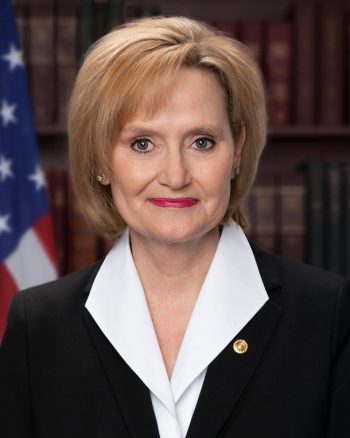
Studio portrait of Sid Salter. (photo by Beth Wynn / © Mississippi State University)
By: Sid Salter
One of the more interesting political eleventh-hour developments as the 2019 March 1 qualifying deadline approached came in the Mississippi Secretary of State’s race with the surprising entry of incumbent Republican Southern District Public Service Commissioner Sam Britton into that GOP primary against incumbent Gulf Coast State Sen. Michael Watson.
As soon as incumbent Republican Secretary of State Delbert Hosemann announced formally during his 2018 Neshoba County Fair speech that he would not seek re-election to that offices, Watson – who has represented Jackson County in the state Senate from District 51 since 2008 – declared his intention to seek the GOP nomination to replace Hosemann during a talk radio interview on Aug. 2, 2018.
Almost as soon as Watson made his announcement, two-term incumbent Republican Gov. Phil Bryant threw his support behind helping Watson raise money for the race and later formally endorsed his candidacy.
Britton, however, was quoted in state media outlets late into 2018 as being a candidate for state treasurer. He confirmed his intention to run for treasurer to me in a conversation in Starkville.
But on Jan. 28 of this year, Britton announced a bid for the secretary of state’s post. The Laurel certified public accountant and former State Tax Commission and State Auditor’s Office staff member acknowledged the popular Bryant’s support of Watson, but said he wasn’t bothered by facing a primary opponent who was endorsed by Bryant.
Britton’s perceived late entry into the race might signal an advantage to Watson in the GOP primary. But Watson could well have some issues of his own to overcome in the form of his close association with fellow Republican State Sen. Chris McDaniel’s rancorous 2014 challenge of then veteran Republican U.S. Sen. Thad Cochran.
In that race, Watson was a key supporter and advisor to McDaniel and when Cochran defeated McDaniel in a hotly-contested second primary, it was Watson who joined McDaniel and Jackson attorney Mitch Tyner in front of the media in launching a challenge first to the State Republican Executive Committee’s certification of the results of that election and later a legal challenge to overturn the results of the election. That effort failed when the courts ruled that the McDaniel brain trust had waited too long to file the challenge.
Interestingly, one of the ballots the McDaniel-Watson-Tyner group sought to disqualify was that cast by Hosemann.
But the basic premise of the challenge was that Democrats voted in the GOP second primary. The language of the election challenge included this: “Many pro-Cochran campaign advertisements in the days leading up to June 24 were clearly targeted to the African-American community. Hinds County is an example… (And) if the Hinds County results are included in the statewide results, they contaminate the entire runoff election.” Later in the challenge, this language: “The results are the same if the (election) results from Claiborne, Coahoma, Madison and Sunflower counties are likewise excluded.”
Mississippi law allows and the Fifth U.S. Circuit Court of Appeals has heldthat limited “crossover” voting is legal unless the voter “crossing over” makes a declaration to the poll workers of his intention not to support the nominee of the party primary in which he or she is voting. Voters are free to choose to vote in either Democratic or Republican primaries, but can’t vote in both and can’t cross the party line in second primaries if they voted in the first primary.
For Watson, the 2019 primary challenge will be whether Cochran’s friends and supporters remember 2014. For Britton, the 2019 challenge will be whether voters believe he was several months late to this particular race.
Then there’s the question of whether the state keeps our present “mixed” primary system – neither open nor closed. Big question for the state’s chief elections officer – or should be.











